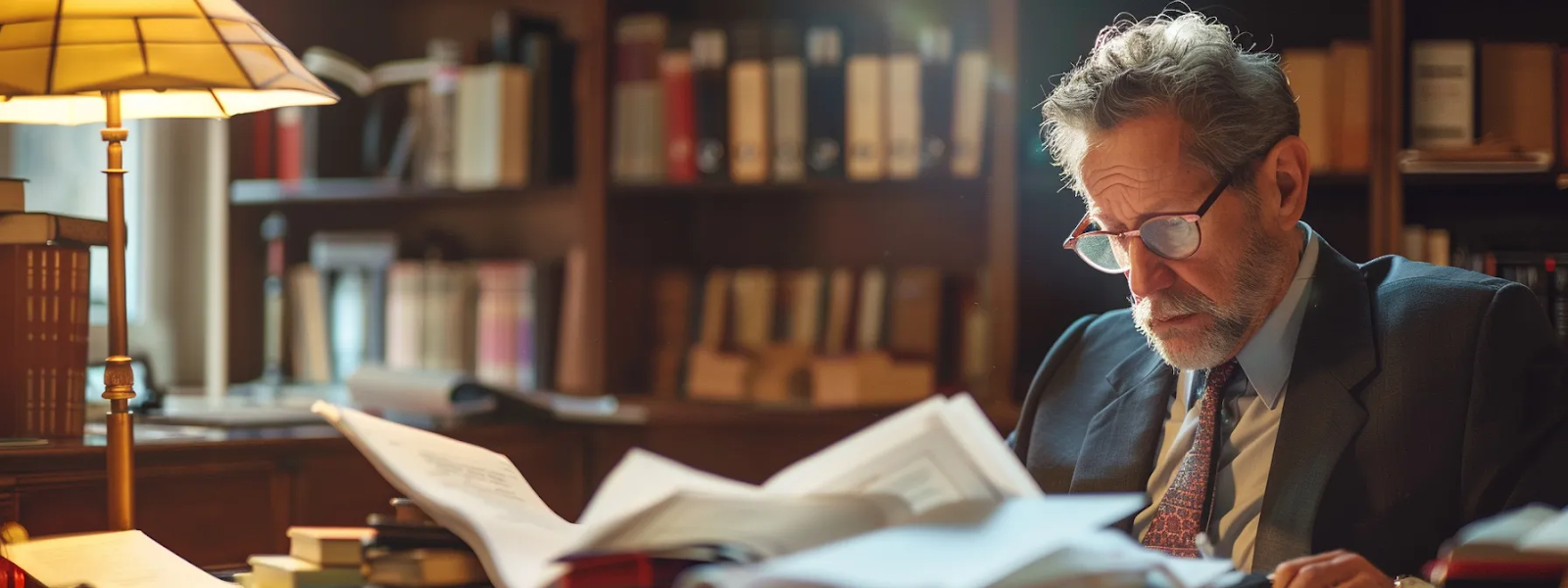The justice system hinges on legal representatives who stand as the vanguard in the protection of individual rights—among them, the criminal defense lawyers. These professionals shoulder the duty of representing those charged with criminal conduct, a cornerstone for maintaining fairness and balance in the court system. In the turmoil and complexity of a criminal trial, defense attorneys offer much-needed guidance and advocacy for the accused. Without their efforts, the scales of justice risk faltering under the weight of inequality. In this article, we delve into the multifaceted role of these legal defenders.
Understanding the Role of a Criminal Defense Lawyer in the Justice System
In criminal proceedings, defense lawyers play a critical role in safeguarding the legal rights of their clients. From the outset, they work to ensure the accused is treated lawfully throughout law enforcement investigations. By providing counsel, a criminal justice lawyer helps clients navigate the initial phases of an arrest and potential charges, crucial moments where the rights of the accused must be stringently protected.
The responsibility of a criminal defense lawyer extends beyond simple representation in court. It encompasses the intricacies of legal advice, strategic planning, and negotiations with prosecutors. Their expertise becomes a beacon of hope for the accused, often illuminating pathways to reduced charges or even case dismissals based on legal technicalities or substantial defenses.
Navigating the Complexities of Criminal Trials: Strategy and Advocacy
A criminal trial is a labyrinth of procedural requirements and legal arguments. Defense attorneys must navigate this landscape with finesse, employing strategies tailored to each case’s subtleties. From motions to dismiss to vigorous cross-examinations, the strategy adopts numerous forms that, when executed efficiently, can be transformative to the case’s trajectory.
An adaptable approach is vital as evidence comes to light and the prosecution makes its arguments. Defense attorneys must be quick thinkers, ready to challenge inconsistencies and highlight weaknesses in the state’s case. Their ability to pivot and adapt to the fluid dynamics of trial proceedings is indispensable in protecting their client’s interests.
The Importance of Legal Expertise in Challenging Evidence and Procedural Errors
Legal expertise stands as the bastion against wrongful convictions, with defense attorneys meticulously analyzing the admissibility and reliability of evidence. The challenge of evidence is not a mere procedural formality; it’s a critical aspect of upholding the tenets of fair justice. Legal experts dissect the origins of each piece of evidence, ensuring that nothing unjustly prejudices their client’s case.
Procedural errors, often inconspicuous to the untrained eye, can have monumental effects on the outcome of a case. By identifying flaws in how evidence was gathered or how legal proceedings were carried out, skilled defense lawyers can call into question the legitimacy of the prosecution’s case, thereby safeguarding the rights of the accused.
In addition to challenging specific pieces of evidence, defense attorneys maintain vigilance over the legality of law enforcement procedures. Missteps such as unlawful search and seizure, failure to Mirandize a suspect, or breaches of due process can be grounds for retrial, underscoring the attorney’s role as a guardian against arbitrary justice.
Balancing the Scales: Defense Attorneys as Pillars of the Adversarial Justice Process
The adversarial system of justice, prevailing in many jurisdictions, mediates the narrative of guilt and innocence through the competing arguments of the defense and the prosecution. Defense attorneys are, therefore, pivotal as they ensure that the narrative of the accused is presented forcefully and effectively, inherently balancing against the state’s significant resources.
Without a competent defense, the adversarial process crumbles into asymmetry. A criminal defense lawyer’s dedication to representation allows for the necessary confrontation of evidence and prosecutorial claims, upholding fairness at the process’s core. They serve not only their clients but the system itself, contributing to its credibility and functionality.
By representing clients from diverse backgrounds, criminal defense lawyers epitomize the principle of equal justice under the law. It is through their diligent representation of every individual, regardless of status, wealth, or alleged crime that the legal system can be held accountable for its promise of impartiality and fairness for all.
Altogether, the role of a criminal defense lawyer cannot be understated in fostering a fair and just legal process. These advocates are essential not only in defending their clients but in upholding the integrity of a system designed to presume innocence. Their expertise, advocacy, and unwavering commitment to justice are what truly balance the scales in the eyes of the law.

